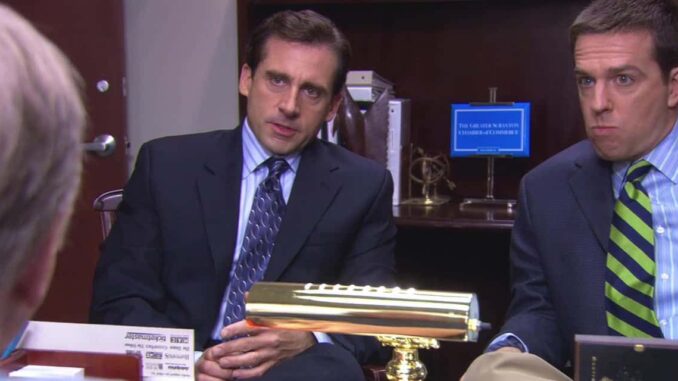
The Goodbye That Lingered: Steve Carell and the Murky End of Michael Scott
Steve Carell's departure from "The Office" in 2011 remains a potent example of the complex dance between creative vision, contractual obligations, and the delicate egos that often fuel the entertainment industry. His journey through the show, from a cringe-inducing regional manager to a surprisingly endearing buffoon, had been transformative for both Carell and the series. Yet, his exit, shrouded in a fog of miscommunication and "he said, she said," paints a picture far removed from the joyful camaraderie that permeated Dunder Mifflin. While the official narrative often leaned towards Carell wanting to explore new avenues, the reality, as he himself revealed, was far more nuanced, hinting at a missed opportunity and a lingering sense of "what if."
The narrative as it initially unfolded was relatively straightforward: Carell's contract was expiring, and he was keen to pursue other acting opportunities. This explanation, while containing a grain of truth, glossed over a crucial element – the lack of proactive engagement from NBC to keep him on board. In later interviews, Carell disclosed that he had indeed indicated his willingness to continue playing Michael Scott. He mentioned, almost casually, his thoughts about staying on, implying that he had communicated this desire to those in charge. However, that communication was apparently met with silence. This silence, as Carell recounts, was interpreted as a lack of interest from the network, essentially leading him to believe that they were ready to move on without him.
The poignancy of this situation lies in the potential for a different outcome. Had NBC simply initiated negotiations, had they expressed their desire to keep him at Dunder Mifflin, the entire trajectory of "The Office" might have been altered. Instead, Carell found himself in a perplexing limbo, a star player seemingly benched because the coach forgot to call his number. The ambiguity surrounding the contract renewal created a vacuum filled with speculation and, perhaps, a sense of regret for Carell himself. He had poured years into crafting a character that resonated with millions, a character that had propelled his career into the stratosphere. To feel unceremoniously pushed aside, or at least to perceive a lack of enthusiasm for his continued presence, must have been a disheartening experience.
The implications of Carell's departure rippled throughout the remaining seasons of the show. While the cast valiantly attempted to fill the void left by Michael Scott, the absence of his unique brand of humor and misguided charm was undeniably felt. Subsequent additions to the cast, while talented, struggled to recapture the magic that Carell had brought. "The Office" continued, but it never quite regained its original spark.
Beyond the immediate impact on the show, Carell's experience highlights the often-opaque and impersonal nature of the entertainment industry. Contracts are not merely legal documents; they represent an investment in talent, a commitment to a shared vision, and a recognition of the value that individuals bring to a project. To disregard the importance of open communication and proactive negotiation, particularly with a talent as integral as Steve Carell, seems like a significant misstep.
In conclusion, Steve Carell's reflections on his "Office" contract reveal a more complex story than initially presented. While his desire to explore other projects undoubtedly played a role, the apparent lack of initiative from NBC to retain him ultimately dictated his departure. This missed opportunity serves as a cautionary tale about the importance of clear communication, valuing talent, and recognizing the profound impact that a single actor can have on the success and longevity of a television show. The goodbye that lingered, in this case, was not just Michael Scott's, but perhaps a silent farewell to a potential chapter of "The Office" that never came to be.